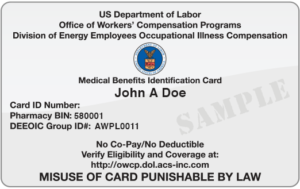When you’re headed to the doctor, it’s important to have a checklist of things you want to ask while you are face to face, otherwise, you may never get the answers you need until the next visit. If you’re currently battling serious health issues, it’s even more important to have a clear picture of the treatment road ahead. For some patients who are primarily bedridden or have reduced mobility that makes it hard getting to the doctor, you may be eligible for free home healthcare services that can help ensure you get the treatment you need and the questions you want answered.
Questions to Ask Your Doctor During a Routine Checkup
If you are having a routine check-up, there are a number of questions you should be asking if your health care provider doesn’t provide the answers first. Some of these include:
- How is my weight doing? Do I need to lose any weight?
- Do I need any screening tests?
- Is there a list of foods I should and shouldn’t be eating?
- Is there anything specific I need to know about this upcoming treatment?
- What do I need to do before my next appointment?
Questions to Ask When You’ve Been Diagnosed with a Condition or Disease
In the event you were recently diagnosed with a disease or medical condition, you need to ask more specific and pointed questions to ensure you understand your current situation and what the future treatment options are. The Cleveland Clinic has a recommended checklist of main categories of things to ask your doctor about, including diagnosis, symptoms, and the treatment plan.
- How serious is this disease/condition and what will it mean for my work and home life?
- What is the cause of this disease/condition?
- What symptoms should I be watching for?
- What type of tests do I need to get now? How accurate are they? Are they safe?
- When will I get the results of these tests and medical labs?
- How will you treat the condition/disease?
- Should I be tested for anything else?
- Could there be another related condition or disease that is causing my symptoms?
When it comes to the treatment plan, you want to know what the risks are and if there are side effects. Will you be taking medication, and does it have side effects too? You want to know how you can be sure it’s working.
In the event you need surgery, you will need to ask a number of specific questions on the why and how of this procedure. You want to know how familiar the doctor is with this type of surgery and what the risks are. How much will it cost, and what happens if you don’t have the surgery. Ask about anesthesia and what the recovery time is. If it’s inpatient surgery, you may want to find out how long you’ll be in the hospital, especially if you need to let your job know.
Free Home Healthcare Services for Some Senior Citizens
United Energy Workers Healthcare and Four Corners Health Care is pleased to offer top-notch home healthcare services to EEOICPA and RECA beneficiaries. These are federal programs which are available to specific individuals who have been affected by the United States nuclear weapons industry. If you or a loved one is suffering and think you may be qualified, there may be free home healthcare services available to you. To learn more about United Energy Workers Healthcare and Four Corners Health Care and what services we offer, contact us at 888-416-0508 today.
Who We Serve
Do you have this card?

If you already have this card, then you are already approved to receive no-cost medical benefits! Call us to get started today.
In order to be eligible for EEOICPA/RECA benefits, an individual must have been employed at a covered Department of Energy facility, an approved atomic weapons facility, or at a permitted beryllium vendor. An individual must also have one of the covered conditions as a result of exposure to radiation, beryllium, or silica while employed at an accepted facility. In addition, uranium miners, millers, and ore transporters are eligible for benefits if they develop an illness as a result of exposure to toxic substances (such as radiation, chemicals, solvents, acids, and metals) and worked at a facility covered under RECA. Eligibility requirements vary by location and condition.